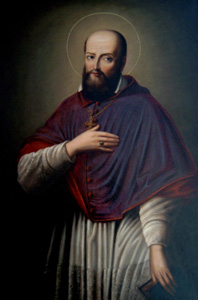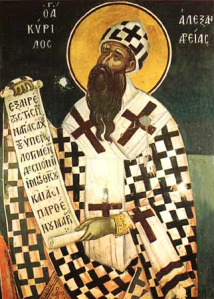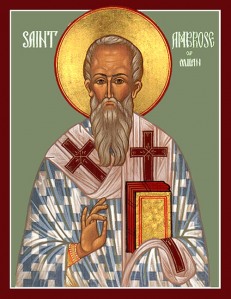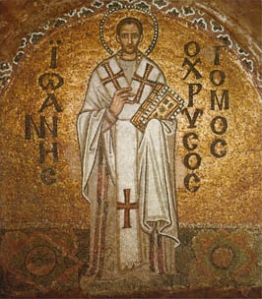 The Evil One delights in sadness and melancholy, because they are his own characteristics.
The Evil One delights in sadness and melancholy, because they are his own characteristics.
He will be in sadness and sorrow through all Eternity, and he would fain have all others the same.
The “sorrow of the world” disturbs the heart, plunges it into anxiety, stirs up unreasonable fears, disgusts it with prayer, overwhelms and stupefies the brain, deprives the soul of wisdom, judgment, resolution and courage, weakening all its powers.
In a word, it is like a hard winter, blasting all the earth’s beauty, and numbing all animal life; for it deprives the soul of sweetness and power in every faculty.
Should you, my daughter, ever be attacked by this evil spirit of sadness, make use of the following remedies.
[…] Prayer is a sovereign remedy, it lifts the mind to God, Who is our only Joy and Consolation.
But when you pray let your words and affections, whether interior or exterior, all tend to love and trust in God.
“O God of Mercy, most Loving Lord, Sweet Saviour, Lord of my heart, my Joy, my Hope, my Beloved, my Bridegroom.”
Vigorously resist all tendencies to melancholy, and although all you do may seem to be done coldly, wearily and indifferently, do not give in.
The Enemy strives to make us languid in doing good by depression, but when he sees that we do not cease our efforts to work, and that those efforts become all the more earnest by reason of their being made in resistance to him, he leaves off troubling us.
Make use of hymns and spiritual songs; they have often frustrated the Evil One in his operations, as was the case when the evil spirit which possessed Saul was driven forth by music and psalmody.
It is well also to occupy yourself in external works, and that with as much variety as may lead us to divert the mind from the subject which oppresses it, and to cheer and kindle it, for depression generally makes us dry and cold.
[…] Moderate bodily discipline is useful in resisting depression, because it rouses the mind from dwelling on itself; and frequent Communion is specially valuable; the Bread of Life strengthens the heart and gladdens the spirits.
Lay bare all the feelings, thoughts and longings which are the result of your depression to your confessor or director, in all humility and faithfulness; seek the society of spiritually-minded people, and frequent such as far as possible while you are suffering.
And, finally, resign yourself into God’s Hands, endeavouring to bear this harassing depression patiently, as a just punishment for past idle mirth. Above all, never doubt but that, after He has tried you sufficiently, God will deliver you from the trial.
Francis de Sales (1567-1622): Introduction to the Devout Life, 4, 12.
















